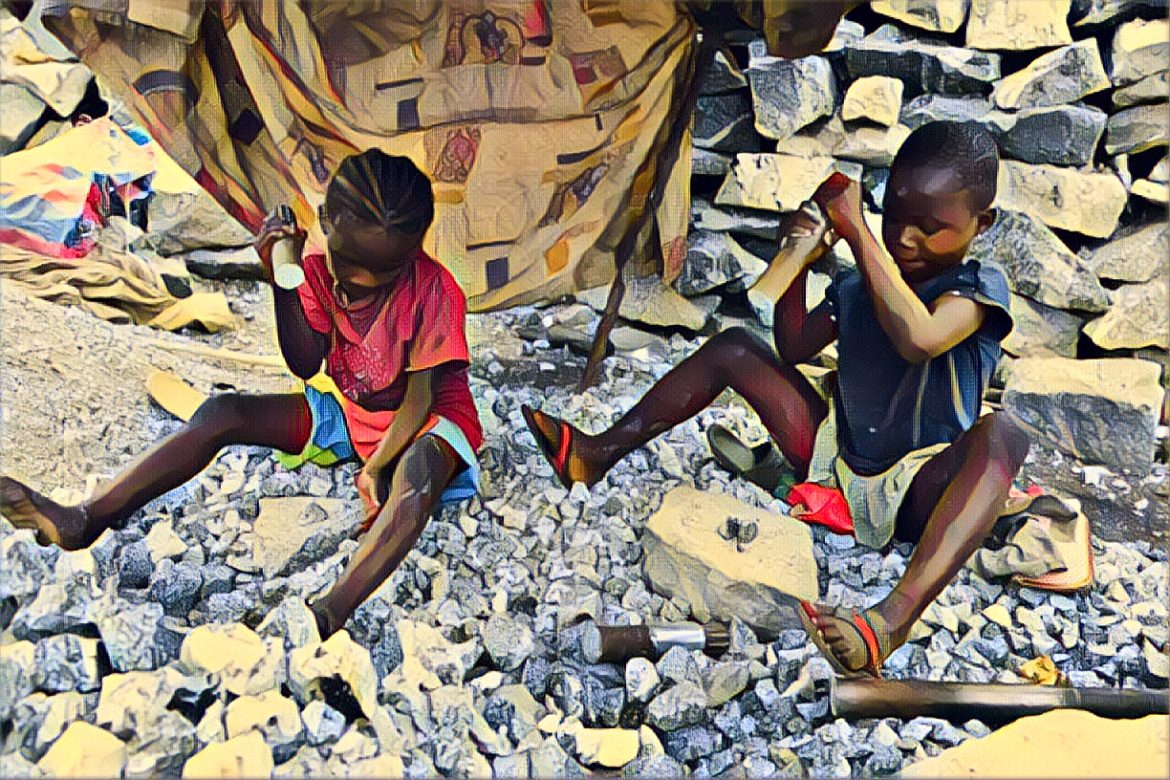A consortium of Non-Governmental Organizations (NGOs) in Nigeria has been actively advocating for the protection and welfare of child domestic workers, highlighting the pressing need for robust policies to safeguard these vulnerable children from exploitation and abuse. This advocacy is championed by organizations including the Street Project Foundation (SPF), Child Protection Network, United States Department of State, the Freedom Fund, Devatop Centre for Africa Development, and the Centre for the Advancement and Protection of the Rights of Vulnerable People (Caprights-Vp).
Child domestic workers, often invisible in the formal sector, are highly susceptible to exploitation, working in precarious conditions without adequate safeguards, access to education, or healthcare services. Rita Ezenwa-Okoro, Founder and Lead Visionary of SPF, pointed out the critical gaps in the protection of these children despite the existence of laws and regulations intended to shield them from harm. Ezenwa-Okoro emphasized that exploitative child labor in domestic settings is a violation of children’s rights and called for collective vigilance and action to address this issue.
To spotlight and combat this issue, SPF initiated an “ARTvocacy” campaign which involved selecting 25 talented individuals from the Oworonshoki community for a three-week non-residential boot camp. These individuals were trained by experts and developed a theatre production titled “Omo Odo,” aimed at raising awareness about the plight of child domestic workers.
Khadijat Emmanuel, Public Relations Officer at the Ministry of Labour, stressed the importance of formalizing the employment of domestic workers to mitigate exploitation risks, which are exacerbated by the informal nature of their employment. She highlighted the need for clear regulations on the working hours suitable for children to prevent overwork and ensure they receive an education.
Olakunle Sanni, National Coordinator of the Child Protection Network Nigeria, criticized the current penalties stipulated in the Labour Act for employing underage domestic workers as insufficient. He advocated for the amendment of the Labour Act to impose stricter penalties, arguing that the existing fine of N50,000 does not serve as a strong enough deterrent. Sanni also urged the media to responsibly cover issues involving child domestic workers, adhering to principles that ensure the child’s best interest, such as avoiding stigmatization and prioritizing the child’s privacy and safety.
The collective efforts of these NGOs underscore the urgent need for comprehensive policies that not only prevent the exploitation of child domestic workers but also provide them with pathways to education and healthier developmental opportunities. Such measures are crucial to ensuring that these children can transition into adulthood with better prospects and protection from the cycles of abuse and exploitation that currently afflict them.
The advocacy extends beyond immediate legal reforms to encompass broader societal changes, including enhancing community awareness and engagement to protect child domestic workers. By fostering an environment that recognizes and upholds the rights of these vulnerable children, stakeholders can contribute significantly to reshaping their futures.
Further, the government’s role in strengthening enforcement mechanisms and oversight to ensure compliance with child labor laws is vital. This includes the provision of resources for regular inspections and the establishment of accessible reporting and support systems for children at risk.
The NGOs involved continue to work on various fronts to advocate for these changes. They engage with policymakers, collaborate with international bodies, and mobilize community resources to build a more robust protective framework for child domestic workers.
As part of broader efforts to address child labor in Nigeria, these organizations also emphasize the importance of international cooperation and support. By partnering with global entities like the United States Department of State and the Freedom Fund, they leverage additional resources and expertise to enhance their local initiatives.
Overall, the advocacy by these NGOs is a crucial step towards altering the landscape of child labor in Nigeria, especially in domestic settings. Their continued efforts are essential in ensuring that child domestic workers are not only protected by law but are also given the opportunity to thrive free from the shackles of exploitation and neglect. The ultimate goal is to foster a society where every child can pursue education and personal development in a safe and supportive environment.
Source: The Guardian


